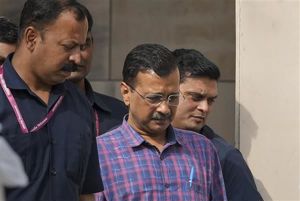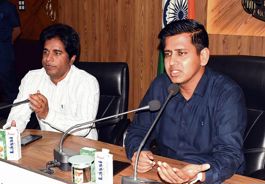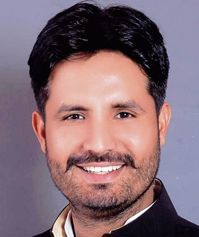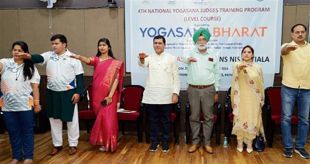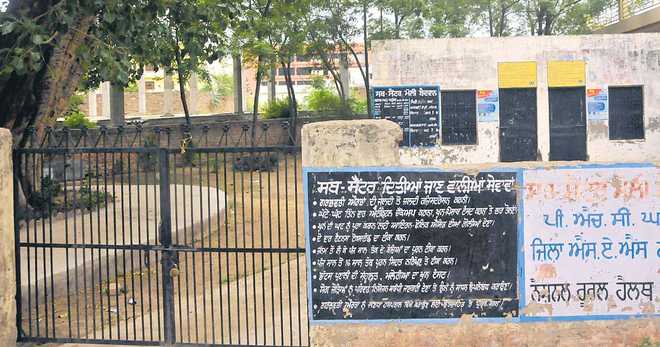
ON LIFE SUPPORT: A locked dispensary at a village in Mohali
Chandrakant Lahariya
HEALTHCARE has been amongst the low priorities of Indian politicians and policy makers, both at the national and state levels. Government investment on healthcare in India, at 1.15 per cent of the gross domestic product (GDP), is one of the lowest in the world. Rarely does the political leadership take the lead in formulating primary healthcare initiatives. Against this backdrop, the recent announcement by the state government to set up wellness (ward/mohalla) clinics in Punjab is a welcome policy development.
Understandably, the public infrastructure for health is weak and even for common illnesses people have to make difficult choices of either delay in seeking care (often till the condition worsens) or visiting private providers by paying from their own pocket, at the risk of falling into poverty. In India, nearly 70 per cent of patients attend private providers, two-third of the total cost on health is out of pocket by the people and an estimated 63 million people fall into poverty due to health-related expenditure.
As the primary healthcare services in the public sector are scarce, it was not surprising for many that mohalla clinics of Delhi, which aimed to provide primary care services, become immensely popular. Since the popularity and visibility of mohalla clinics, a few states and municipal corporations have announced the decision to set up clinics based on a similar concept. In May 2017, the Greater Hyderabad Municipal Corporation announced the plan to open 1,500 “Basthi Davakhanas” and now, the Punjab government is the latest addition to the list. The proposed clinics in Punjab could be a game changer and an opportunity to reform healthcare in the state. As a preparation before setting up these clinics/facilities, it would be worth for the policy makers/programme managers in the state to learn from both mistake and practices adopted in Delhi, when mohalla clinics were scaled up. First, the state needs to develop a detailed road map and implementation plan to set up these clinics. There has to be clarity on the objectives of the proposed wellness ward/mohalla clinics and what value these clinics would add. The value addition could be: (a) prioritisation of facilities for under-served areas and population, (b) strengthening and establishing effective and well-respected referral linkages with the next level of facilities; and (c) harmonisation of services with existing health facilities as well as a strong linkage with Urban-Primary Health Centres (U-PHC) under the National Urban Health Mission (NUHM), amongst others. The numbers of proposed clinics need to be ambitious enough, including meeting the future health needs, at least for the next three to five years, alongside a plan to revamp existing facilities. In this context, prior to selecting locations and arriving on required numbers, a detailed mapping of all health facilities (public and private) and gap analysis (required and available) in health services in the city, should be done.
Punjab may need around 800-1,000 such clinics, in addition to existing health facilities, to meet the state's primary healthcare needs. The road map-cum-operational plan needs to have timelines, budget as well as roles and responsibilities assigned amongst stakeholders. Such a document has to be approved at the highest level and shared with other key stakeholders, an essential for success and sustainability of the initiative and to ensure the desired accountability.
Second, this opportunity should be used to reform and strengthen primary healthcare. As the name indicates, the proposed clinics should have a range of curative services and a range of population health services, including vaccination, screening for non-communicable diseases, prevention, promotion and control of seasonal diseases. That would be value addition over the design of Delhi's mohalla clinics, which currently focus only on curative and diagnostic services. In addition, the initiative should focus on overall reform and strengthening of primary healthcare by establishing effective referral linkage and aiming to decongest the higher level of health facilities.
Third, the aim of setting up any such clinics should be “to increase access to quality health services and reduce expenditure by people on the use of health services (making services affordable)”. The clinics where patients have access to a qualified doctor would be a partial success unless these clinics have the provision of free medicines and diagnostic services. While medicines can be provided through the government system, a dedicated and strong laboratory network has to be ensured. It will be useful if laboratory system is set up with "time- taken-to-access" approach. Detailed planning and the cost of these components need to be factored in from the beginning.
Fourth, one of the likely challenges in execution of such well-intentioned health initiative is insufficient financial allocations. A detailed and agreed road map and operational plan could be a good tool to advocate for more financial resources. As the announcement has been made by the Chief Minister, it seems to have the right political stewardship needed for such an initiative. Still, a continuous engagement between the Health Minister and the Finance Minister would ensure increase in financial sustainability. Punjab already has the in-house experience of establishing similar facilities known as "health kiosk". Twentythree such kiosks are already functioning across different parts/districts of the state. Though, far and few and with their own strengths and weakness, the experience from establishing and running these kiosks could be used by state officials to develop a plan of action and expedite the process of setting up proposed facilities. In the last two years, a number of states and municipal corporations have shown an interest in setting up such facilities; however, none could translate policy intentions into actions at the ground. Therefore, the stakes are already high and the next steps of the Punjab government would be worth watching. The failure to make any progress in this direction would further erode the faith of people in political leadership. However, if it is implemented effectively, it can serve to improve access and reform primary healthcare services in the state. This could serve as a model for primary healthcare for other states and contribute to accelerate the progress towards universal health coverage in India.
The writer is a public policy expert. The views expressed are personal
























